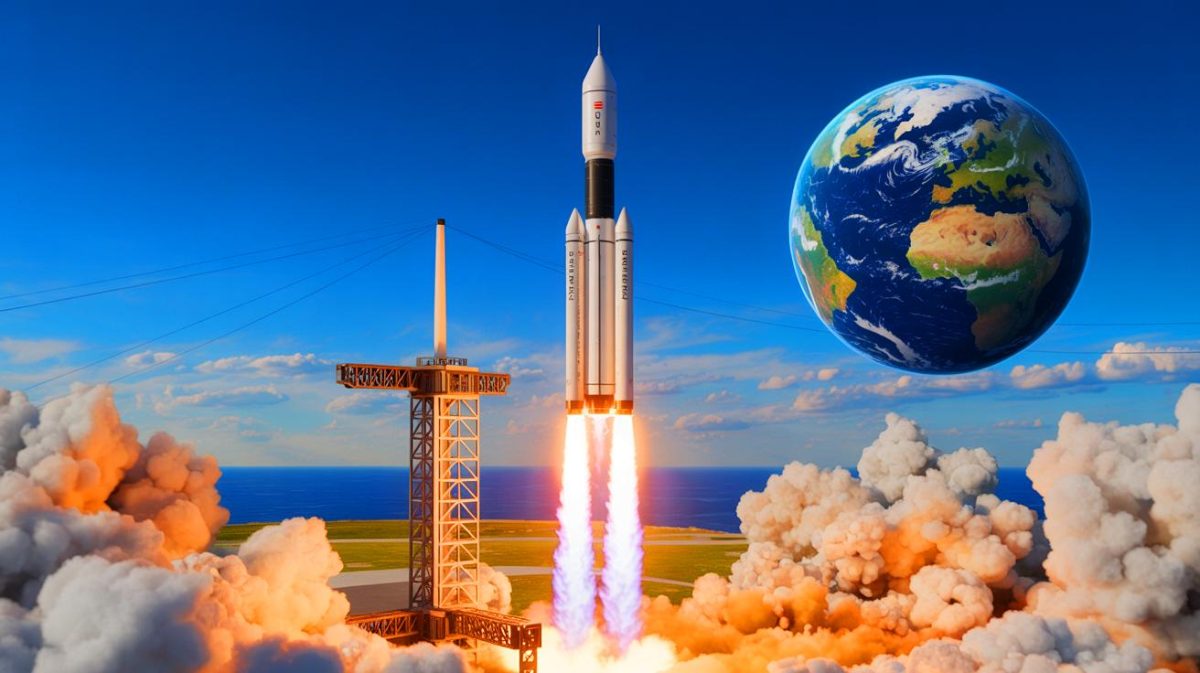| IN A NUTSHELL |
|
The future of global logistics is on the brink of a transformation with the U.S. Air Force’s collaboration with Rocket Lab. By utilizing cutting-edge aerospace technology, they aim to revolutionize the delivery of cargo worldwide. This innovative approach seeks to leverage space-based platforms for rapid, point-to-point transportation, promising to deliver payloads anywhere on Earth within hours. As part of this ambitious plan, a significant experiment is scheduled for 2026 or later, marking a pivotal moment in defense logistics and commercial space capabilities.
Rocket Lab’s Pioneering Role in Space Logistics
Rocket Lab, a renowned aerospace firm, is at the forefront of this groundbreaking mission with its medium-lift reusable Neutron rocket. Selected by the Air Force Research Laboratory (AFRL) for the Rocket Cargo mission, Rocket Lab is set to demonstrate the feasibility of space-based cargo delivery. This mission’s core objective is to establish a new benchmark in commercial launch capabilities that can significantly enhance global defense logistics.
The mission, dubbed a “survivability experiment,” aims to test the Neutron’s ability to deliver and return payloads safely. AFRL’s payload will be launched on Neutron, showcasing its re-entry capabilities, which are crucial for future missions. Although the financial terms of the contract remain undisclosed, this partnership underscores the growing trust in Rocket Lab’s innovative technologies.
Neutron Rocket: A Game Changer in Space Launch
The Neutron rocket is engineered to transport a substantial payload of 28,660 pounds (13,000 kilograms) to low Earth orbit, making it a formidable player in the space launch arena. This powerful rocket is not only intended for cargo transport but also for deploying satellite constellations, supporting national security missions, and carrying science and exploration payloads.
According to Sir Peter Beck, Rocket Lab’s founder and CEO, Neutron is poised to set a new standard in performance, affordability, and reliability for both government and commercial space users. The rocket’s development is on track, with its maiden launch scheduled for 2025. At Wallops Island, Virginia, the construction of the launch pad is progressing as planned, further cementing Rocket Lab’s commitment to advancing space logistics.
Innovations in Rocket Landing Technology
One of the key innovations associated with the Neutron rocket is its landing technology. Earlier this year, Rocket Lab announced plans to land the rocket’s payloads at sea. To achieve this, they are modifying an offshore barge, aptly named “Return on Investment”, which will serve as an ocean landing platform for returning missions.
This development highlights Rocket Lab’s commitment to creating sustainable and cost-effective solutions for space missions. By enabling sea landings, Rocket Lab not only ensures the safe return of payloads but also reduces the overall costs of the operation. This strategy demonstrates a forward-thinking approach that could set a precedent for future commercial and governmental space missions.
Future Prospects for Global Defense Logistics
The potential of space-based cargo delivery to revolutionize global logistics is immense. By enabling rapid transportation of essential supplies across the globe, the U.S. Air Force and Rocket Lab are paving the way for a new era in defense logistics. This mission, although still in its early stages, promises to redefine how military and humanitarian aid is delivered during critical times.
As the world becomes increasingly interconnected, the ability to deploy resources swiftly and efficiently can make a significant difference in global security and humanitarian efforts. The success of this mission could lead to further innovations in space logistics, opening up new possibilities for commercial and governmental applications alike.
As we look to the future, the partnership between the U.S. Air Force and Rocket Lab raises intriguing questions about the role of space in everyday logistics. How will these advancements impact global transportation, and what further innovations can we expect in the coming years?
Did you like it? 4.4/5 (24)









Is this the beginning of space wars? 🤔
How does the Neutron rocket compare to SpaceX’s Starship in terms of payload capacity?
I wonder how much a “Return on Investment” costs. Sounds like a pricey barge! 😂
Can we use this technology for humanitarian aid? 🌍
What happens if a payload gets stuck in orbit?
Sounds like sci-fi is becoming real life! 🚀